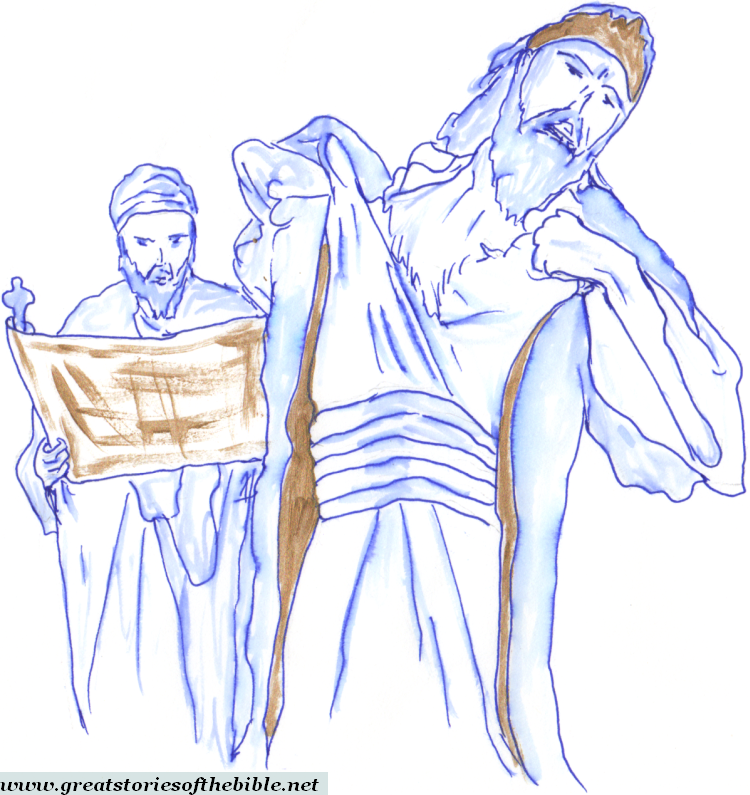Josiah - episode 1
They have not listened to the words of this book
With this post, we are approaching the conclusion of the Hebrew monarchy. We are in chapter 13 and following of the first Book of Kings and in the second Book of Kings. After the separation occurred with Solomon’s succession, the stories of the two kingdoms (Israel in the north and Judah in the south) continue in parallel for many years. Egypt and Assyria dominate the international context. The northern kingdom, where Prophets Elijah and Elisha exercised their ministry, will fall under the Assyrians’ siege in 721 BC, with the capture of its capital Samaria (that city gives the name even to the region around it). «In the ninth year of Hoshea the king of Assyria took Samaria, and carried Israel away to Assyria, and placed them in Halah, and on the Habor, the river of Gozan, and in the cities of the Medes. [...] The king of Assyria brought men from Babylon, and from Cuthah, and from Avva, and from Hamath and Sepharvaim, and placed them in the cities of Samaria instead of the children of Israel; and they possessed Samaria, and lived in the cities of it. [...] However every nation made gods of their own, and put them in the houses of the high places which the Samaritans had made, every nation in their cities in which they lived. [...] And they worshiped the LORD, yet appointed from among themselves priests of the high places, who sacrificed for them in the houses of the high places. And they worshiped the LORD, yet served their own gods, after the ways of the nations from among whom they had been carried away. To this day they do what they did before: they do not fear the LORD, neither do they follow their statutes, or their ordinances, or the law or the commandment which the LORD commanded the children of Jacob, whom he named Israel». The punishment of the kingdom’s destruction and its people’s deportation came from Israel’s sin; in fact, from Jeroboam onwards they did not follow the Lord’s way. Because of that deportation and the arrival of many other foreign people brought there by the Assyrians, in Samaria will arise a new cult of the Lord mixed with other religious practices. This is how the biblical text explains the differences between Jews and Samaritans, that have led to their long-standing enmity (we can read about it even in Jesus’ ministry: Lk 9,52 and Jn 4).
In the southern kingdom (where, among others, works Prophet Isaiah) things are not better. One of the few kings faithful to the Lord is Josiah, who reigns over Judah from 640 to 609 BC. «Josiah was eight years old when he began to reign; and he reigned thirty-one years in Jerusalem: and his mother’s name was Jedidah the daughter of Adaiah of Bozkath. He did that which was right in the eyes of the LORD, and walked in all the way of David his father, and did not turn aside to the right hand or to the left». During a restoration of the Temple ordered by Josiah the high priest finds a book, that the scribe Shaphan reads to the king (by its contents it would seem a primitive version of the Deuteronomy). «It happened, when the king had heard the words of the book of the law, that he tore his clothes. The king commanded Hilkiah the priest, and Ahikam the son of Shaphan, and Achbor the son of Micaiah, and Shaphan the scribe, and Asaiah the king’s servant, saying, “Go inquire of the LORD for me, and for the people, and for all Judah, concerning the words of this book that is found; for great is the wrath of the LORD that is kindled against us, because our fathers have not listened to the words of this book, to do according to all that which is written concerning us.”».

They go to Huldah the prophetess and she answers this way. «Thus says the LORD, the God of Israel: ‘Tell the man who sent you to me, “Thus says the LORD, ‘Behold, I will bring disaster on this place, and on its inhabitants, even all the words of the book which the king of Judah has read. Because they have forsaken me, and have burned incense to other gods, that they might provoke me to anger with all the work of their hands, therefore my wrath shall be kindled against this place, and it shall not be quenched.’” But to the king of Judah, who sent you to inquire of the LORD, thus you shall tell him, “Thus says the LORD, the God of Israel: ‘Concerning the words which you have heard, because your heart was tender, and you humbled yourself before the LORD, when you heard what I spoke against this place, and against its inhabitants, that they should become a desolation and a curse, and have torn your clothes, and wept before me; I also have heard you,’ says the LORD. ‘Therefore behold, I will gather you to your fathers, and you shall be gathered to your grave in peace, neither shall your eyes see all the disaster which I will bring on this place.’”’». Josiah begins a radical religious reform of Judah, destroying and desecrating the other gods’ worship places and killing their priests. So fulfills the prophecy that the man of God made to Jeroboam three centuries before (see 2Kings 23,16). «Notwithstanding, the LORD did not turn from the fierceness of his great wrath, with which his anger was kindled against Judah [...]. The LORD said, “I will remove Judah also out of my sight, as I have removed Israel, and I will cast off this city which I have chosen, even Jerusalem, and the house of which I said, ‘My name shall be there.’”». Follow in the next post.